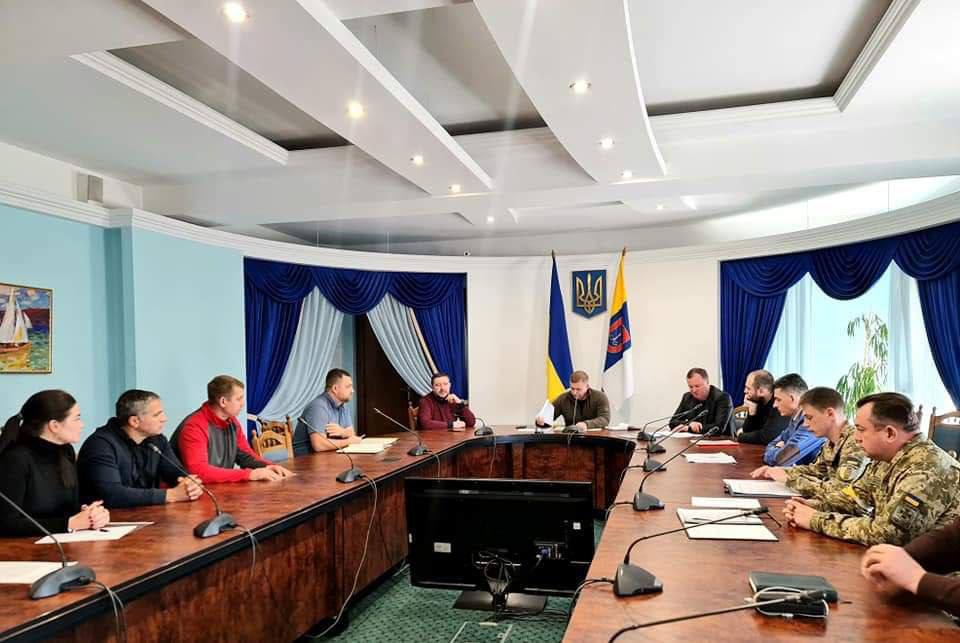Since Russia’s full-scale invasion of Ukraine on Feb. 24, 2022, Ukrainian males of conscription age (18-60) have not been allowed to leave Ukraine. The ban also applies to sailors on commercial ships.
On Sept. 2, 2022, after six months of bureaucratic delays, the Cabinet of Ministers passed a resolution permitting sailors to go abroad. The list of required documents was established on Oct. 22, 2022.
- Read the most contemporary war in ukraine update in the Kyiv Post’s daily news pieces for today.
- Find the newest Ukraine news pieces that came out today.
JOIN US ON TELEGRAM
Follow our coverage of the war on the @Kyivpost_official.
However, unlike residents of other regions, those in the Odesa region still cannot obtain the required documents. According to a representative of the Ukrainian Seafarers Union, Volodymyr Artamonov, the situation is the worst in the Odesa and Mykolaiv regions, which are subordinated to the Operational Command South. There, the authorities ignore the government’s resolution.

Volodymyr Artamonov, a representative of the Ukrainian Seafarers Union.
Bureaucratic Catch-22
Immediately after the government passed the resolution allowing commercial sailors to leave Ukraine back in September, Artamonov applied for a permit but was rejected because the local military officials did not have the official list of required documents. Neither did the military offices in any of the other regions.
“On Sept. 2, the Cabinet of Ministers passed Resolution No. 992 allowing sailors to temporarily leave Ukraine for their workplaces, but we had to obtain a special ‘permit to leave the place of residence’ from the military office. Artamonov said. The military office, in turn, told him that they were still waiting on a list of officially required documents.

UkrFerry’s Wartime Survival: “Whatever the Wind, You Need to Keep Your Sails Up”
Confronted by the problem, the Ukrainian Seafarers Union demanded that the official list be established. Their effort was not in vain: on Oct. 22, 2022, the General Staff of the Armed Forces of Ukraine produced the list.
All military offices across the country were supposed to receive the relevant document within two days and act accordingly, but the administrative regions subordinated to the Operational Command South continued to ignore the government’s resolution.
“The problem in the southern regions is that they refer to Article 23 [on mobilization],” says Artamonov. “They say it doesn’t mention sailors, so there’s no way we can help you. They still want the word ‘sailors’ in that article. But in other regions, sailors already receive permits.”
Bribes and other ways to obtain a permit
According to Artamonov, some of the sailors residing in the southern regions moved to other regions, registered there as internally displaced persons (IDP), then registered at local military offices and thereby obtained the permit to go abroad.
In fact, the problem exists exclusively in the regions subordinated to the Operational Command South.
 Odesa military administration. Photo by Volodymyr Artamonov.
Odesa military administration. Photo by Volodymyr Artamonov.
According members of the Ukrainian Seafarers Union, a permit from a military office in the Odesa or Mykolaiv region can be bought for a price.
“Many sailors complain that after they are denied the permit, military office employees approach them and offer a ‘solution’ for $5,000 to $10,000,” says Artamonov.
“If you pay a certain sum, you get a ‘white ticket’ [a document certifying that the person is unfit for military service]. Then you can cross the border. But we want it to be in accordance with the law. We don’t want to pay anyone.”
What does the Operational Command South say?
Natalia Humenyuk, spokesperson for the Operational Command South, told public broadcaster Suspilne that the government’s resolution indeed lists the documents required to enable sailors to go abroad for contract work, but in no way lifts the norms of martial law, i.e., that all males aged from 18 to 60 are subject to mobilization.
“In other words, a permit to cross the border can only be issued to males who are not subject to mobilization or are deferred (due to age, family or health status etc.),” said Humenyuk.
 Odesa military administration. Photo by Volodymyr Artamonov.
Odesa military administration. Photo by Volodymyr Artamonov.
“There are no obstacles on the part of local military offices. They act in accordance with the active law. If a person applies for a military registration document, he has to pass the necessary medical examinations. If the medical commission finds him fit for service, these norms apply to him.”
The struggle continues
Artamonov continues to struggle for sailors’ right to go abroad, using every opportunity to expose the problem as widely as possible through the press and at protest rallies. But almost all rallies end up in skirmishes with the police and mass detentions. During some of them, call-up papers are handed out to protesters.
“The sailors gathered to demand their rights, but suddenly people from the military offices of Odesa came and handed out call-up papers,” Artamonov said, recalling an incident that happened last fall.
He has complained to the State Bureau of Investigation, the National Anticorruption Bureau, and the Military Prosecutor’s Office, but all his letters of complaint have invariably landed at the Odesa military office, leaving him stranded in a vicious circle.
You can also highlight the text and press Ctrl + Enter











